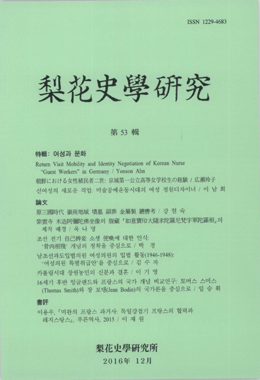After the liberation of the Korean peninsula, women`s groups started to raise issue on problems that were pushed aside during the Japanese colonial rule due to independence movements that focused on erecting a new, independent country. These problems were mainly women`s rights issues that called for the necessity of women`s groups to improve the capabilities of women and for a constitutionally supported legal reinforcement of gender equality. The first women to enter an official legislative body joined the South Korean Interim Legislative Assembly (KILA or Legislative Assembly) that was established in December 1946. The United States Army Military Government in Korea(USAMGIK) established the Legislative Assembly in 1946 and announced that it would accommodate 90 members. Out of the total 90 members 45 were to be selected through election and the remaining 45 were to be appointed by the General of the USAMGIK. Four women were appointed by the General to join the Legislative Assembly: Shin Eui-kyung, Hwang Shin-duk, Park Seung-ho and Park Hyun-sook. Although these women were appointed by the USAMGIK, they represented the first generation of politicians to hold public offices. Women legislators of the Legislative Assembly faced numerous obstacles. Most of the time it was difficult to gain the floor amongst male legislators. Whenever women members tried to legislate laws to protect women`s rights the bills were dubbed `archaic` and the women who suggested the bill were ridiculed for revealing their own incompetency. Women legislators suggested an electoral gender quota that would legally ensure more women in politics that set a minimum number of seats allotted to women legislators. For the following reasons the special electoral laws on women legislators did not pass. Women legislators tried and failed to persuade the people that women`s rights did not pertain to women only but was an issue of all genders and was an issue of becoming a new and genuine democratic country with gender equality. Women had to overcome the various limits existing in the male dominated political field. Traditional gender role stereotypes were deeply rooted in the social structure, which contained the women`s role into the house. The women came to a conclusion that they must empower themselves and urged others to gain a new understanding while at the same time consistently emphasized the importance of women`s self-empowerment, as a means of women to solve women`s issues directly.




